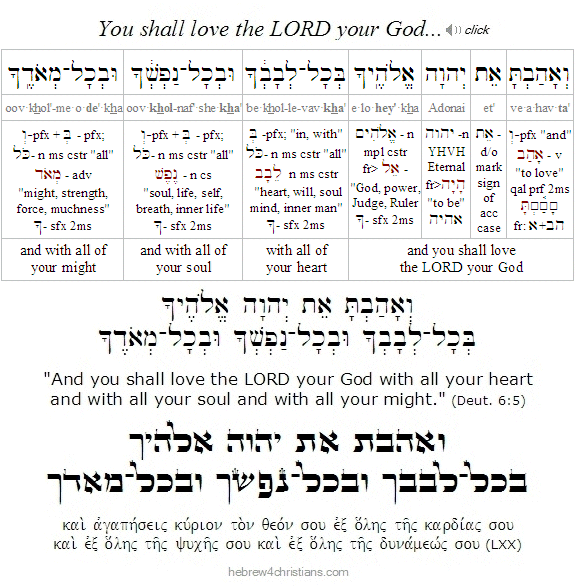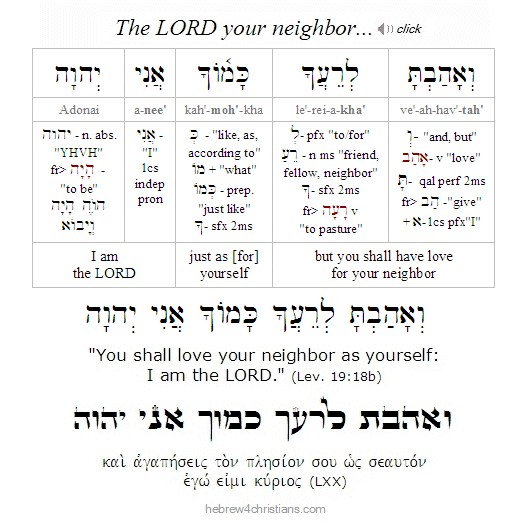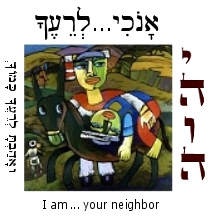|
According to the Jewish historian Josephus (i.e., Yosef Ben Matityahu, c. 37-100 AD), there were four primary "sects" or "denominations" of Jews during the time of Yeshua. In very general terms, these can be defined as follows:
- The Saduccees (i.e., צַדּוּקִים, "righteous ones," from Tzadok the priest). These were members of the (Hellenized) priestly class responsible for the Temple and its operations. The Sadducees rejected the idea of Oral Torah and accepted only the written words of Moses as authoritative. After the Hasmonean revolt (168-165 BC), the Sadducees assumed control of the Temple and represented the aristocracy of the Jewish people. Over time, however, they became increasingly cosmopolitan and adopted the philosophical ideas of Hellenistic (i.e., Greek) culture.
- The Pharisees (i.e., פְּרוּשִׁים, "interpreters"). These were Torah scholars who sought to teach the common people how to live the Jewish life. The Pharisees regarded themselves as heirs of the oral tradition that began with the appointment of the 70 elders of Israel under Moses (Avot 1:1). In the generation prior to Yeshua, two outstanding Pharisees - Hillel and Shammai - led important schools in Jerusalem (called Bet Hillel and Bet Shammai, respectively). These two schools differed in their approach to questions regarding the application of the law to daily life, and many of their arguments were preserved in the Mishnah. (In general, Bet Hillel was more liberal than Bet Shammai.) The Pharisees of Yeshua's day would have been disciples of one (or both) of these schools.
- The Essenes (perhaps from oseh hatorah: עוֹשֵׂה הַתּוֹרָה, "doing Torah"). These were mystical ascetics who repudiated the Hellenized priesthood (i.e., Sadducees) and moved to the Judean desert near the Dead Sea to await the apocalypse. The Essene leadership regarded itself as the true heirs of the Aaronic priesthood and awaited the appearance of the Teacher of Righteousness (מוֹרֶה הַצֶּדֶק) who would interpret Torah mysteries and guide them in the way of life. (Note that Yeshua was not an Essene since he was not a vegetarian, he did not advocate regular ritual immersion in a mikvah, and he commanded lepers to offer sacrifices at the Temple.)
- The Zealots (i.e., קנאים, "ardent ones"). These were political agitators that sought to incite the Jews to rebel against Roman rule by force of arms, if necessary. They refused to pay tribute to Caesar on the ground that this was a violation of the principle that God was the only King of Israel (Matt. 22:17). Two of Yeshua's disciples were sympathetic to Zealotry: Simon the Zealot (ζηλωτής) and Judas Iscariot (perhaps meaning "Judas the Daggerman," surnamed after the sica, or Roman dagger, see note at bottom of the page). It should be noted that in Hebrew, the word "zeal" (i.e., kana: קָנָא) can be used in various ways, whereas the term "zealot" (הַקַּנָּאִי) usually refers to someone who agitated for the political overthrow of Rome during the Second Temple period.
Zeal can be a good thing or bad thing, of course, depending on the heart's motivation and the nature of reality. Perhaps the first "zealot" of Israel was Aaron's grandson Pinchas. In our Torah portion, we read: "Pinchas the son of Eleazar, son of Aaron the priest, has turned back my wrath from the people of Israel, in that he was zealous with my zeal among them, so that I did not consume the people of Israel in my zeal" (Num. 25:11). The word translated "zeal" in this verse is kana (קָנָא), usually translated as "zeal," "ardor," "fervor," "desire," "devotion," "jealousy," or "envy" in the Scriptures. (In the ancient Greek translation of the Torah (i.e., the LXX), kana is often translated using the word zelao (ζηλόω), from which the English word "zeal" is derived.) As already mentioned, "zeal" can be a positive quality (indicating passionate concern for others, striving for the good, and desiring righteousness), or a negative quality (indicating petty jealousy, envy, pride, and malice).
There are many who are entirely sincere in their convictions, but they are sincerely wrong... In the time of the Second Temple, for instance, the Zealots despised the rule of Rome. Their political hatred caused them to blindly regard anyone who didn't share their passion as a personal enemy. In one of the great tragedies of Jewish history, these zealots actually killed more Jews than did the Romans themselves! And how many Christians these days "kill" relationships with other believers because of their particular zeal regarding some doctrinal question? I am not suggesting that doctrine is unimportant, but before you pick up that sword to do the business of Pinchas, you might do well to consider your heart's attitude...
You don't have to be a political zealot to have "zeal," of course. Zeal is essentially an emotional response to perceived value and truth... It's well known that Yeshua faced some of his fiercest opposition from the Pharisees, who were of course self-styled "Torah zealots." These were the professors of theology, the camel-swallowing teachers of the law, and the gatekeepers of Jewish identity and tradition... For an example of their approach, the Gospel records an incident where a certain "lawyer" (i.e., νομικός or "Torah sage") stood up and aggressively challenged (ἐκπειράζων) Yeshua to explain what he must do to inherit eternal life (Luke 10:25-28). Yeshua first responded by asking the man a question of his own: How do you read the Torah? Like most good teachers, Yeshua shifted the question back to the person who was asking it. The way you read (i.e., interpret) is the result of other, more basic, presuppositions you are making.
This Torah zealot was certainly well-studied in Scripture. He did not provide a litany of 613 commandments to perform, nor did he focus on the Ten Commandments. Instead he replied by citing the Ve'ahavta portion of the Shema ("You shall love the Lord your God with all your heart and with all your soul and with all your strength and with all your mind") and added the obligation to "love your neighbor as yourself" (Lev. 19:18). The man's answer was correct, of course, though it is likely he was repeating what Yeshua had been teaching about the essence of Torah all along. At any rate there wasn't a hint of irony in Yeshua's reply: "You have answered correctly; do this, and you will live" (Luke 10:28).
וְאָהַבְתָּ אֵת יהוה אֱלהֶיךָ בְּכָל־לְבָבְךָ
וּבְכָל־נַפְשְׁךָ וּבְכָל־מְאדֶךָ
ve'a·hav·tah · et · Adonai · e·loh·hey'·kha · be'khol · le·vav·kha
oov'khol - naf'·she·kha · oov'khol - me·o·de'·kha

"You shall love the Lord your God with all your heart
and with all your soul and with all your strength" (Deut. 6:5)

וְאָהַבְתָּ לְרֵעֲךָ כָּמוֹךָ אֲנִי יהוה
ve'a·hav'·tah · le're·a·kha · ka·mo'·kha · a·nee · Adonai

"You shall love your neighbor as yourself. I am the LORD" (Lev. 19:18)

The problem, of course, is that most people - even zealously religious people - don't actually "do this," though they may claim otherwise. After all, truly loving God with all your heart and genuinely loving your neighbor as yourself are surely the most difficult of all the commandments, and indeed, all the other ethical language of Scripture amounts to little else but commentary to this fundamental truth (Matt. 22:40). If people could keep these two commandments, then there would be no need for a Savior. The cross would then be regarded as "foolishness" and the entire mission of Yeshua would be absurd.
Salvation means (negatively) being set free from "the law of sin and death" and (positively) being "reborn" so that we can truly love God and others. It is not a question of "willpower" or the "zeal" of man; it is not a question of what I can do but rather what God can do (John 1:13). The assumption that human actions are sufficient to merit eternal life (i.e., through performing loving acts) is therefore the problem of sin itself. The "law of sin and death" (תּוֹרַת הַחֵטְא וְהַמָּוֶת) operates on this very principle: As long as you think you can merit eternal life by means of your own efforts, you are relating to God as Judge (אֱלהִים) rather than as Savior (יהוה). You have yet to experience inner brokenness and therefore believe you can "justify yourself." The cross of Yeshua is the negation of this principle and represents the "end of the law for righteousness to all who believe."
Yeshua, however, surely knew that people could not save themselves, despite their best efforts. Our Torah sage intellectually knew what God's requirements were, but he was powerless to live them out in his life. Knowing the truth is not the same thing as living it. A zeal for truth is wonderful if it is lived out in real life, but it is self-deception to "draw near to God with the lips" while having a dead heart (Isa. 29:13). Truly loving God with all your heart, soul, mind and strength is simply impossible for the unregenerated heart. By nature people are "spiritually dead" and self-absorbed. Yeshua knew that it is precisely because we are unable to love that we need Him. He understood that it required his passion and sacrificial death to impart life to those who were spiritually dead.... "We love Him because He first loved us" (1 John 4:9).
Unsatisfied with Yeshua's response, the zealous sage then "wanted to justify himself" (θέλων δικαιῶσαι ἑαυτὸν) by attempting to qualify the definition of "neighbor." He therefore asked Yeshua, "Who is my neighbor?" (Luke 10:29). Some background to this question might help. Jewish tradition tended to regard the concept of "neighbor" (i.e., rea: רֵעַ) as referring only to one's fellow Jew, and therefore the obligation to love "others" outside the community did not apply. In response to the man's question (and addressing his underlying assumption), Yeshua told the story of a man traveling from Jerusalem to Jericho who "fell among thieves." This story illustrates various types of people as they "walk the road" of life and how they respond to the suffering of others.
Soren Kierkegaard comments:
The first man was a peaceful traveler who walked along the road from Jericho to Jerusalem, along a lawful road. The second man was a robber who "walked along the same road" – and yet on an unlawful road. Then a priest came "along the same road"; he saw the poor unfortunate man who had been assaulted by the robber. Perhaps he was momentarily moved but went right on by. He walked the road of indifference. Next a Levite came "along the same road." He saw the poor unfortunate man; he too walked past unmoved, continuing his road. The Levite walked "along the same road" but was walking his way, the way of selfishness and callousness. Finally a Samaritan came "along the same road." He found the poor unfortunate man on the road of mercy. He showed by example how to walk the road of mercy; he demonstrated that the road, spiritually speaking, is precisely this; how one walks. This is why the Gospel says, "Go and do likewise." Yes, there were five travelers who walked "along the same road," and yet each one walked his own road.
Yeshua then asked, "Which of these three (i.e., the priest, the Levite, or the Samaritan), do you think, proved to be a neighbor to the man who fell among the thieves?" When the Torah sage answered, "the one who showed mercy," Yeshua said, "do this, and you will live."

Notice again that Yeshua responded to the original question by means of redirection: "How do you read the Scriptures?" "Which of these was a neighbor?" "What do you think?" Like all good teachers, Yeshua was reluctant to simply give a direct answer. No, he expected people to work out the problem for themselves. After all, each of us is responsible for how we choose to "walk" the road of life. We all have zeal, desire, and passion, but the question is how is that zeal directed? What direction does it take down the road of life? Reason is often the slave of our passions. As Yeshua said, "Wisdom is justified by her children."
Instead of attempting to qualify someone as worthy of our love, Yeshua wants us to be worthy and loving ourselves. Are you offended by the lack of love shown toward you? Then act as a true lover by showing compassion. Go and "do this" (Luke 10:29-37).
There is a "false zeal" that leads people to estrangement and confusion. Withholding love from others is ultimately grounded in an appeal to God as the administrator of Justice. It is an appeal to God as Elohim (אֱלהִים), not as YHVH (יהוה), the Compassionate Source of Life. If we insist on our rights, we appeal to principles of justice, i.e., to God as the Lawgiver. But if we intend to have God be the Judge of others, we must appeal to Him to be our own Judge as well. If we have an unforgiving spirit toward others, we will not be forgiven (Matt. 6:15); if we are judgmental toward them, we ourselves will be put on trial; if we are cruel and ungiving toward them, we will experience life as hellish, miserable and mean. This reciprocal principle of Kingdom life appears throughout Yeshua's teaching. According to your faith, be it done unto you (Matt. 9:29). As you forgive, so you shall be forgiven (Matt. 6:14); as you judge, so you shall be judged (Matt. 7:2); as you show mercy, so you shall be shown mercy (Matt. 5:7); as you give unto others, so it shall be given unto you (Luke 6:38). This "as principle" works the other way around, too: "Whoever diligently seeks good seeks favor, but evil comes to him who searches for it" (Prov. 11:27).
Zeal needs to be carefully tested to ensure that it is imbued with genuine love and humility. This is a matter of honest self-examination. The zeal of Pinchas was considered righteous because his indignation was rooted in the desire to save Israel from God's judgment (Num. 25:11). Though he killed a leader of Israel, God knew his zeal was based on love, and therefore his action was accepted.
Jealousy is a complex emotion that primarily centers on the fear of losing the affection of the beloved. Hence the LORD is called the "Zealous God" (אֵל קַנָּא), an anthropomorphic description that evokes the image of a loving and protective groom (or even a "jealous lover"). God is not some far-off deity who is disengaged from our lives. No, the zeal of the LORD means that God is passionately concerned with the ordering of our heart's affections... He watches us lovingly and closely, like a faithful and passionate husband watches over his beloved wife. He is entirely committed to our relationship with Him, but are we putting other desires, affections, or interests ahead of His love?
Abraham Heschel said, "In a controversy, the instant we feel anger, we have already ceased striving for truth and have begun striving for ourselves." Anger is a signal, a message. Sometimes it used to disguise fear, though it is often related to lust (or control). When we sense that we are not in control, we get angry. "What causes wars and quarrels among you? Is it not this, that your lusts (ἡδονῶν ὑμῶν) are at war within you?" (James 4:1). The zeal for one's lusts - for "my will be done, on earth as it is in heaven" - leads to destruction and death. As James the Righteous warned: "There is a spirit in us which longs to envy" (James 4:5).
Finally, it should be clear that the "zeal of the LORD" represents God's passion to save the world from sin and death. As the prophet Isaiah wrote:
"For to us a child is born, to us a son is given; and the government shall be upon his shoulder, and his name shall be called Wonderful Counselor, Mighty God, Everlasting Father, Prince of Peace. Of the increase of his government and of peace there will be no end, on the throne of David and over his kingdom, to establish it and to uphold it with justice and with righteousness from this time forth and forevermore. The zeal of the LORD of hosts (קִנְאַת יהוה צְבָאוֹת) will do this" (Isa. 9:6-7).
"Truth is lacking, and he who departs from evil makes himself a prey. The LORD saw it, and it displeased him that there was no justice. He saw that there was no man, and wondered that there was no one to intercede; then his own arm brought him salvation, and his righteousness upheld him. He put on righteousness as a breastplate, and a helmet of salvation on his head; he put on garments of vengeance for clothing, and wrapped himself in zeal (קִנְאָה) as a cloak (Isa. 59:16-17).
It was the "zeal for God's house" that "ate Yeshua up" and caused his undoing, at least from a worldly perspective (Psalm 69:9). He overturned the tables at the Temple and stopped the daily sacrifice for the sake of our salvation. It was His zeal that led Him to the Cross at Moriah, there to passionately suffer and die for our sins. His death was a "whole burnt offering" to God - the Substance of which the shadows of the Temple foretold... Ironically enough, it was the Sinat Chinam of the zealots of Israel that ultimately led to the death of Yeshua, but this "evil zeal" was overturned by God's greater zeal for the salvation of the world.
The zeal of the LORD (קִנְאַת יהוה) represents His passion and eagerness to help those who trust in Him. Man's zeal is always insufficient, since if it were enough, mankind could save itself by truly practicing the works of love. God's zeal, however, is of altogether different order and is entirely sufficient for salvation. "With man this is impossible, but with God all things are possible" (Matt. 19:26). Self-justification - of any sort - attempts to operate under the principle of the "law of sin and death." It is essentially an appeal to God as Judge (אֱלהִים) rather than as Compassion LORD (יהוה). It is the Spirit that gives us life - though at the price of the death of the ego. As Yeshua said, "Truly, truly, I say to you, unless a grain of wheat falls into the earth and dies, it remains alone; but if it dies, it bears much fruit" (John 12:24). We do not need to seek to become more zealous but rather to trust in the zealous love of God for our lives. The passion that led Yeshua to "sweat great drops of blood" and to endure the shame of the Cross is the same passion that is present to you, if you have faith enough to believe... Kinat Adonai Tzeva'ot ta'aseh zot: "The zeal of the LORD of hosts will do this" (Isa. 9:7).
|





